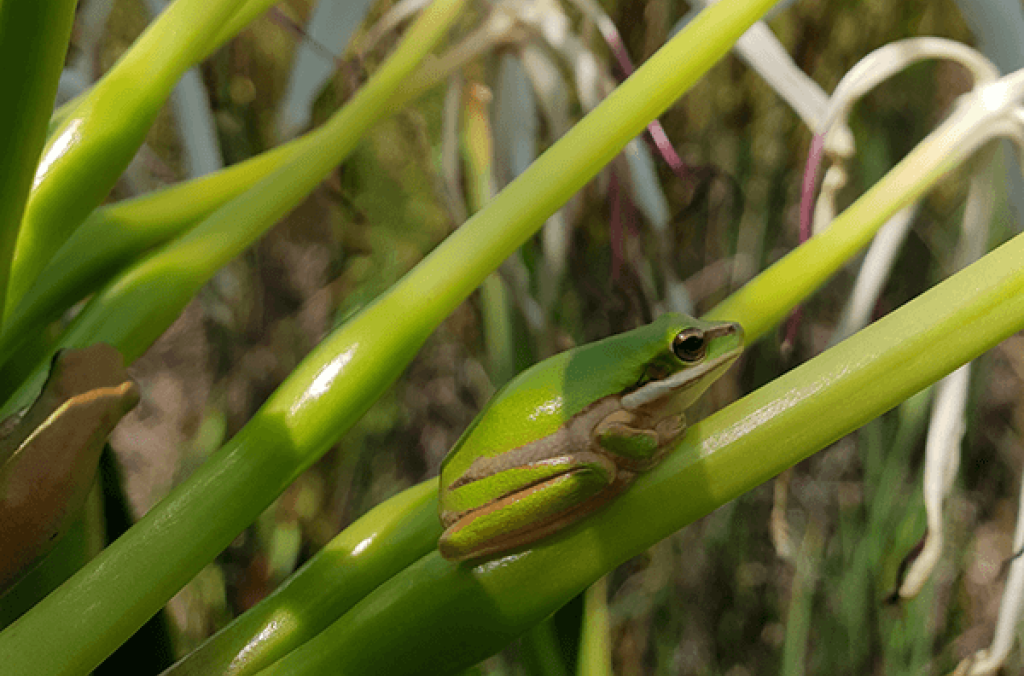“Waaaaahhhhhh Wah Wah Wah” ‘Reeek-bip!’ ‘Crick, crick, crick’ and ‘tock-tock-tock’ – these are the unique voices of some of the 7 frog species at Sydney Olympic Park. World Frog Day falls on the 20 March, a day to take a moment, to listen and consider a small, fascinating group of animals that are one of the keys to keeping our wetlands healthy. Here are some incredible facts about our frogs:
Frog skin is amazing
Frog skin is critical to their survival and to keep it in tip-top condition, the Striped Marsh Frog will completely shed about once a week (and usually eat it!).
Frogs stay close to a water source to keep their skin moist as the skin of a frog not only provides camouflage, but oxygen and carbon dioxide can diffuse through it as a secondary way of breathing, particularly in water. Frog skin is also the first line of defence against pathogens in the environment with many interesting chemicals present to fight them off (medical science is very interested in this!).
Frogs cross worlds
As amphibians, frogs live part of their life in the water and part on land. A Green and Golden Bell Frog must lay its eggs into a pond as they do not have a shell and can dry out easily. These eggs then hatch into tadpoles, a watery life stage so different to the adult frog that it is like looking at two different organisms!
Over time the tadpole metamorphoses - it grows legs, and its tail and gills are absorbed into the body. Eventually, the adult frog can emerge from the pond and live a life on land.
Frogs are great at insect control
All frogs eat a wide range of bugs, insects and other small creatures – in fact anything they can fit into their mouths! The Eastern Dwarf Tree Frog is an excellent stealth hunter, climbing trees and shrubs to sit under flowers and capture a meal. This tiny frog will sit quietly and ambush anything that comes in reach.
What would the world be like without frogs?
Imagine not hearing a multitude of calling Common Eastern Froglets having a winter party in a pond or see the amazing metamorphosis of a tadpole into a frog.
Frogs are a keystone of many ecosystems, they are important biological pest controllers and important prey for a multitude of other species. Without them, Sydney Olympic Park would be a lesser place (and very quiet!).


